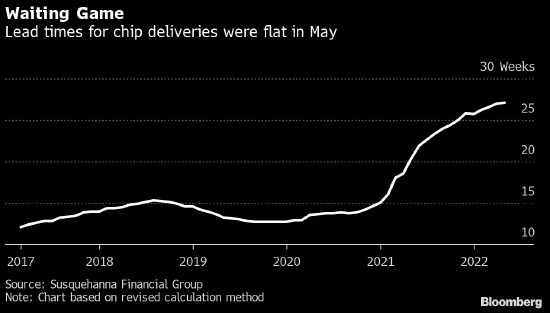“Company-specific data points are skewed to the downside, with about 60 percent of chip companies seeing shorter lead times,” Susquehanna analyst Chris Rolland said in a research note on Tuesday.
Rolland pointed out that the ongoing disruptions caused by the Russian-Ukrainian war, etc., have not resulted in significantly longer lead times.
The Mercedes-Benz Group said on Tuesday that chip supply was improving and that its global car manufacturing operations were largely operating as normal.VolkswagenIt also said in early May that it expected the semiconductor shortage to ease in the second half of the year.
Morgan StanleyAnalyst Adam Jonas also said in a report that strong foundry shipments, a slowdown in the consumer electronics market and the resumption of production in China may help chip shortages ease earlier than expected.
While the situation remains fluid, Jonas wrote, based on communications with automakers, suppliers, and data from Morgan Stanley’s semiconductor team in Asia, a chronic global shortage of automotive chips may be nearing a resolution.

